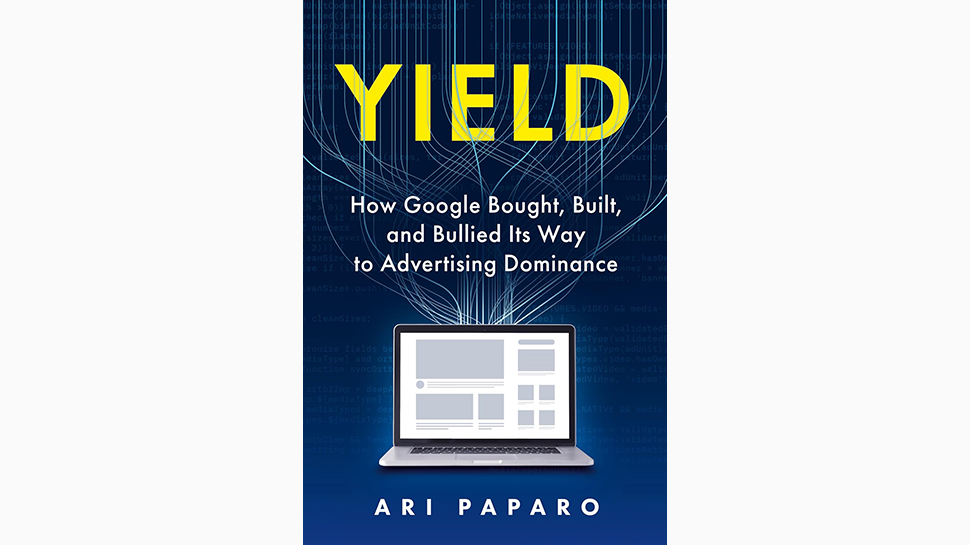Why breaking up Google could backfire for media, publishers, and the open web


When it comes to digital advertising, Ari Paparo is one of the most respected, and outspoken, voices in the business.
A former Google executive turned industry critic, Paparo is one of the foremost experts on advertising technology, with decades of experience building and analyzing the systems that power the online economy.
In his explosive new book, Yield: How Google Bought, Built, and Bullied Its Way to Advertising Dominance, he delivers a sharp, insider critique of Google’s ascent to power in the ad tech world, and the collateral damage it’s left in its wake.
With antitrust scrutiny ramping up in the U.S. and abroad, Paparo warns how efforts to break up Google could have unintended consequences for the already fragile ecosystem of media and publishers.
In this conversation, we dig into why he uses the word “bullied,” what a post-Google internet might look like, and whether the rise of AI is changing the game, or just reinforcing old monopolies with smarter tools.
- The title of your book contains the word ‘bullied’ to express how Google reached its dominant position today. Why use such a strong, loaded word?
To set the context we have to acknowledge that a Federal Judge has already found the company to be an abusive monopoly in this area, so “bullied” is letting it off a bit easy.
Specifically, though, what happened in the advertising technology (“ad tech”) sector was that Google came from nowhere, and through a series of acquisitions ended up in a position where it was both the buyer and the seller of a huge swath of display ads.
Once in that position it began flexing its muscles in ways that extracted margins from the transactions at the expense of competitors, and without the consent or knowledge of its customers.
In one particular instance, which is featured in the dramatic introduction to the book, Google unilaterally changed the controls that publishers had on the ways they could price their own ads, to the benefit of Google and over the loud and angry objections of major customers like Gannett, News Corp, Daily Mail, and others.
Bullying seems appropriate.
- In its defense, Google could argue that it is now being challenged by newcomers like OpenAI, Facebook and others. What are your thoughts on it?
The book Yield focused on the ad tech market which was the subject of the Eastern Virginia court’s monopoly findings.
This is largely separate from the court’s findings in the search case, which took place in the DC court, and which is more concerned with the emerging competitive space of OpenAI, Facebook, etc.
In the ad tech case, Google has an incredible 90% market share in the core software category of publisher ad serving, and is 10 times the size of the next competitor in the ad exchange market.
Interestingly, Google’s dominance here had a direct effect on the behavior of Facebook – evidence in the case showed that Facebook was hesitant to invest in the open web advertising market because it felt there was no way to participate without going through Google.
- Could removing Google out of the online ad market potentially kill the ‘open web’ altogether?
Google puts all of its activities in the so-called “open web” into the financial segment of its business called “Network.” This division has seen little to no growth for years and has the worst margins of any part of the company.
There’s a real risk that as a result of the antitrust findings, as well as the diminished attractiveness of this sector, that the company takes its toys and goes home. That would actually be a huge blow to publishers and media, because the ads from Google Ads (f/k/a AdWords) are a big source of revenue for the open web.
The decisions Judge Brinkema makes about how exactly to unwind the monopoly Google has built are fraught with danger for the ads ecosystem.
- How do you see Google evolving over the next decade and what about the online market, in light of what AI is doing to the ecosystem?
Google is trying to navigate a major shift in consumer behavior from “search results” to “answers.” Already search volume appears to be in decline and publisher referral traffic is plummeting.
The implication clearly appears to be that consumers will spend more time with the AI and less time linking out to the open web.
Google’s ace in the hole is YouTube, which both feeds the AI and captures consumer time to compete with Instagram and TikTok.
Over the past two years Google Ads has been aggressively pushing its AI-powered ad buying system, PMax, which gives the advertiser less control and insights into how ads are running, but produces superior results.
This ad strategy dovetails with the product strategy since PMax can seamlessly move ad dollars to YouTube and other parts of Google’s world and only use the open web when valuable to do so.
Facebook exited the market for the open web ads following the Cambridge Analytica scandal — it felt it was just too rife with controversy to continue. Facebook continues monetizing the app market through the Facebook Audience Network, or FAN.
Many people in the advertising business hope that with the dismantling of Google’s hegemony over the open web there might be an opportunity for Facebook, TikTok, or other players to bring some of their advertising dollars back.
- The $1 trillion question. Do you think it’s just too late now to stop Google?
The next two years will be the most interesting period for the search business since Google’s inception.
The search antitrust trial is considering a Chrome spin-out and forcible sharing of data from Google to competitors, which, when combined with the promise of AI, could reshape the whole environment.
In the ads space, which is the subject of Yield, Google already seems somewhat willing to reduce its involvement, having proposed a partial spin-out to European regulators last year (the proposal was rejected as insufficient).
It is definitely within the realm of possibility that Google’s presence in the open web is radically different in a couple of years than it is now. Whether that is to the benefit or detriment of publishers is too hard to tell.




